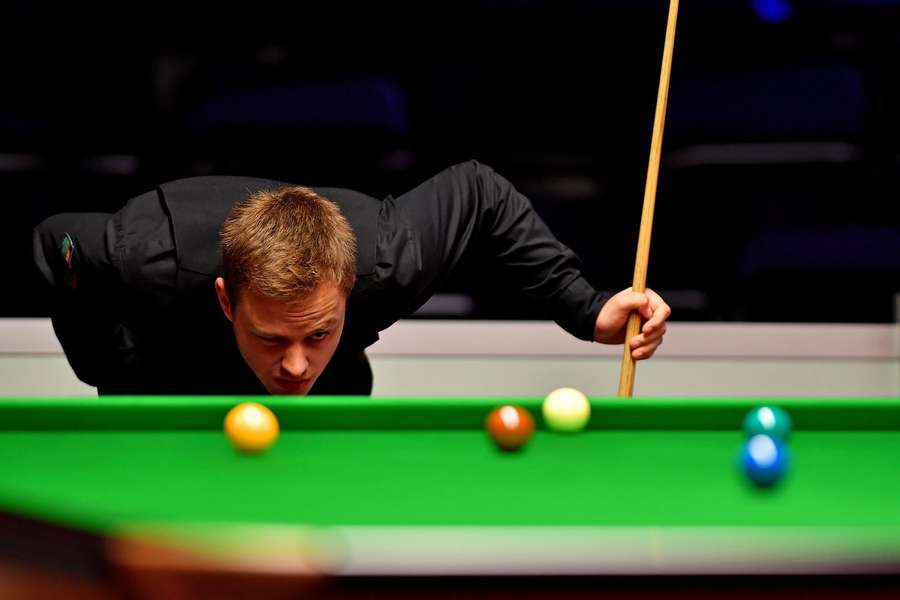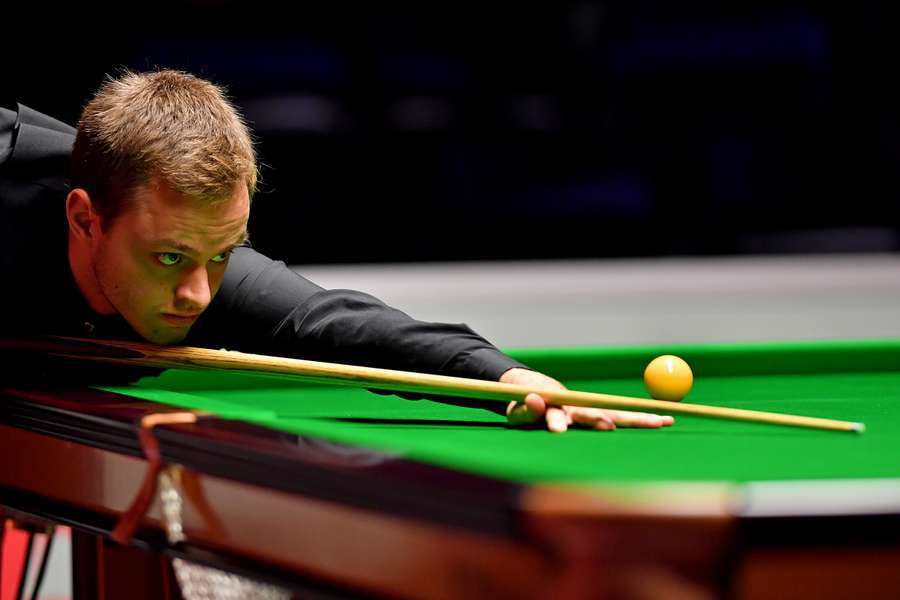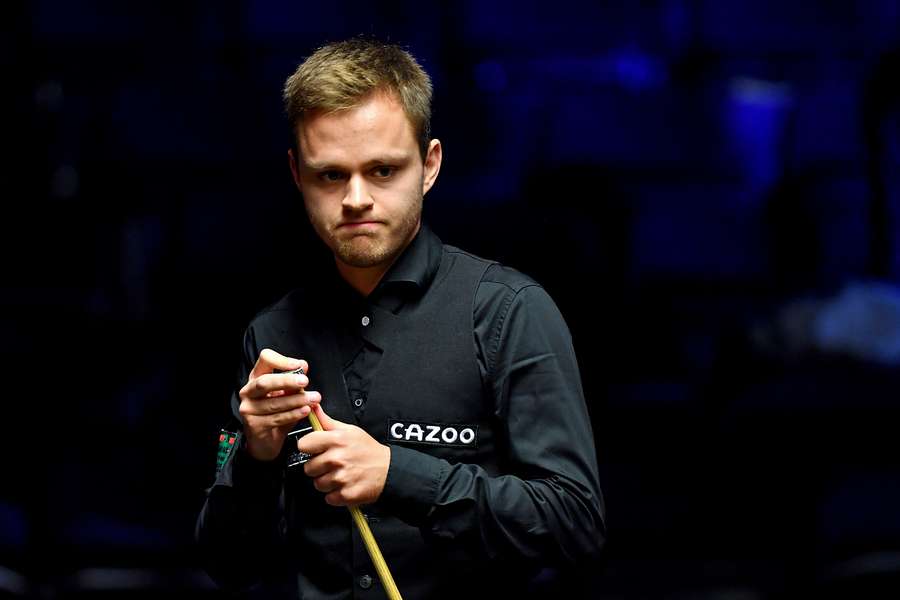EXCLUSIVE: Lukas Kleckers on rising through the ranks

Flashscore News' Heik Kolsch sat down exclusively with the sport's current number 77 to talk about his past and the future.
Heik Kolsch: Hey, Lukas! How does it feel to be the German number one in snooker?
Lukas Kleckers: "I have to say, you don't notice it so much in everyday life. When I am at the tournaments or in England, it doesn't make a big difference. It's not a special feature. Of course, I'm proud of the fact that I've won a lot in Germany as well. But you can't buy much from it."
The keyword is 'buy'. It is always said that life as a snooker professional outside the top-32 is not that easy. How do you see that in terms of support and funding?
"It's super hard to get on the tour for a start because the places are very much in demand. And staying in is also very difficult. The costs are not to be underestimated.
"Fortunately, we now have a prize money guarantee, which was newly introduced. That means that all players in a season, no matter if they lose every game in the 1st round, are guaranteed at least 20,000 pounds (about 23, 250 euros).
"That's not much to live on, of course, but it's a security we have now - and it didn't exist before. Before, we knew before the season that we first had to bring in 10,000 in order to cover the costs. That's definitely better now.
"Of course, the higher you are in the ranking, the more it pays off, and then the jumps get bigger. I would say that the top 32 can make a very good living from it. Of course, it depends on what you mean by living well. Of course, it's nothing like football."

Do you feel that you have enough opportunities with your current ranking to show what you're capable of - and how does it look organisationally/financially with international tournaments?
"It is true that we are still suffering a little from the consequences of COVID-19. Before that, there were six tournaments in China alone, one in India - even one in Latvia.
"With COVID-19, everything was cancelled without replacement. We are still feeling the consequences. Next season there are supposed to be tournaments in China again for the first time, but the calendar is still not as full as it was before.
"The hope with every tournament is that one will get far. And that can change everything a bit for the whole year. It's always very important to win the first match in the qualifiers. There is nothing for the loser. It's fixed that way because the head of the federation has always said that he 'doesn't want to pay losers'.
"But if you win the first match, you've actually already won enough prize money to make it all worthwhile."
So is there a tournament that you felt particularly good about?
"There is one tournament, the Riga Masters. I don't know why. But I always had very good results there. I was in the round of the last 32 three times in four participations. Otherwise, I might have made it ten times in total.
"I also played my first professional match there and won directly against a former world champion (editor's note: Neil Robertson). That was very crazy. But that was also the last match I won in the season, although it was right at the beginning of the season (...grins)."
You also won against another former world champion, Mark Selby, and have played snooker legend Ronnie O'Sullivan three times. As I understand you, though, your favourite memory is the game from Riga?
"Yes, that was very special because I had just turned professional on the Main Tour at the time. Then to beat Robertson, I wouldn't have even dreamt of that before. I still remember it fondly today.
"What was special about Selby was that it was the best match I ever played. I won the first frame relatively close, on the last black. After that, he didn't get a chance for three frames. I won 4:0 and he had absolutely no chance.
"The fact that I can say that a world champion and someone who was at the top of the world ranking list for four years had no chance against me, that's something very special for me."
Did he give you a squeeze afterwards - or did you go for a beer?
"(laughs) No, he just said: 'Well played' - he really meant it. He wasn't annoyed either. There are games that you have in your own hands and lose. That's a bit harder to cope with. But that day I just had a great day. So he just said: 'You did a good job' and wasn't angry.
"But some players leave right after the match because they often come from far away. And when they lose, they just want to go home."
Do you make friends on the tour or does everyone go their own way after the match?
"It's different. I myself have frequent contact with Alexander Ursenbacher. He is Swiss and has been on the tour for a long time, one of the most successful German-speaking players. As German-speaking colleagues, we naturally have more frequent contact with each other or go out to eat together when we are at a tournament.
"But generally, it's different. Some don't speak English that well, so you have less to do with them."
Let's move on to the question you probably hear most often: what's it like to share a table with O'Sullivan, the sport's poster boy?
"It's always special, of course. I only have to play against him and I have three times as much attention as in all the other games, regardless of their level. Against O'Sullivan, I know I'll almost always be playing on the main table, so I'm usually on TV as well.
"But I prefer to remember the games with Selby and Robertson, regardless of the fact that I won against them and not against O'Sullivan (grins). I always try to just concentrate on my game and not pay attention to who I'm playing against. When you have a difficult ball to play, it doesn't really matter who it's against."
When you look at O'Sullivan, Robertson or Selby - is there a skill you'd like to work on? What do you learn when you play against opponents who you realise are really strong? Where do you want to take a leaf out of their book?
"A big point is consistency. Everyone can play on the Main Tour. But the top people are not where they are for nothing. You can always win one or two frames against them. But the longer the matches get, the harder it is to win against these players. Because in the long run, they just make fewer mistakes and when they make them, they can handle them well.
"For example, if I'm doing quite well in a match, but a mistake creeps in at some point, it usually has more serious consequences. And with the top people, it's like they make a mistake and then pick up exactly where they left off - so again without any mistakes in the next frames.
"This consistency and the ability to deal with mistakes - that is certainly one of the biggest areas of improvement. And that's also what separates the top guys from the other players."
Is there a ritual - or how do you try to get better in such moments? I would imagine it's that you kind of mentally tell yourself that it doesn't matter what happens. But of course that's easier said than done.
"You can't think about what situation you're in or how important a ball is right now, what the consequences might be if you do this or that. In fact, it's best to think as little as possible - and have no expectations, but just be positively surprised when something goes well. Because otherwise you only put yourself under pressure and are no longer relaxed. And you need this looseness at the table.
"You can see this looseness very well with O'Sullivan, for example. And he plays the balls accordingly. Of course, that's difficult to implement because there's a lot at stake. But you have to play as if there is nothing at stake."

That is then also reflected in his character, because he really doesn't seem to care.
"Exactly."
Have you set yourself any specific goals for the next 1-2 years - or are you more relaxed about it?
"I know anything is possible. The primary goal is to stay on the tour. Last year I made it to the quarter-finals in a tournament, that was a very good result. I have a lot of confidence in myself, but I also know that anything can happen in this sport. That's why I'm not too concerned with expectations.
"Of course, you have goals somewhere, maybe you dream of winning a tournament. But really I just want to play the next ball well and see what the result of that is."
That's a nice closing word. Thank you for your time, We will definitely follow you and wish you all the best for the next time.

